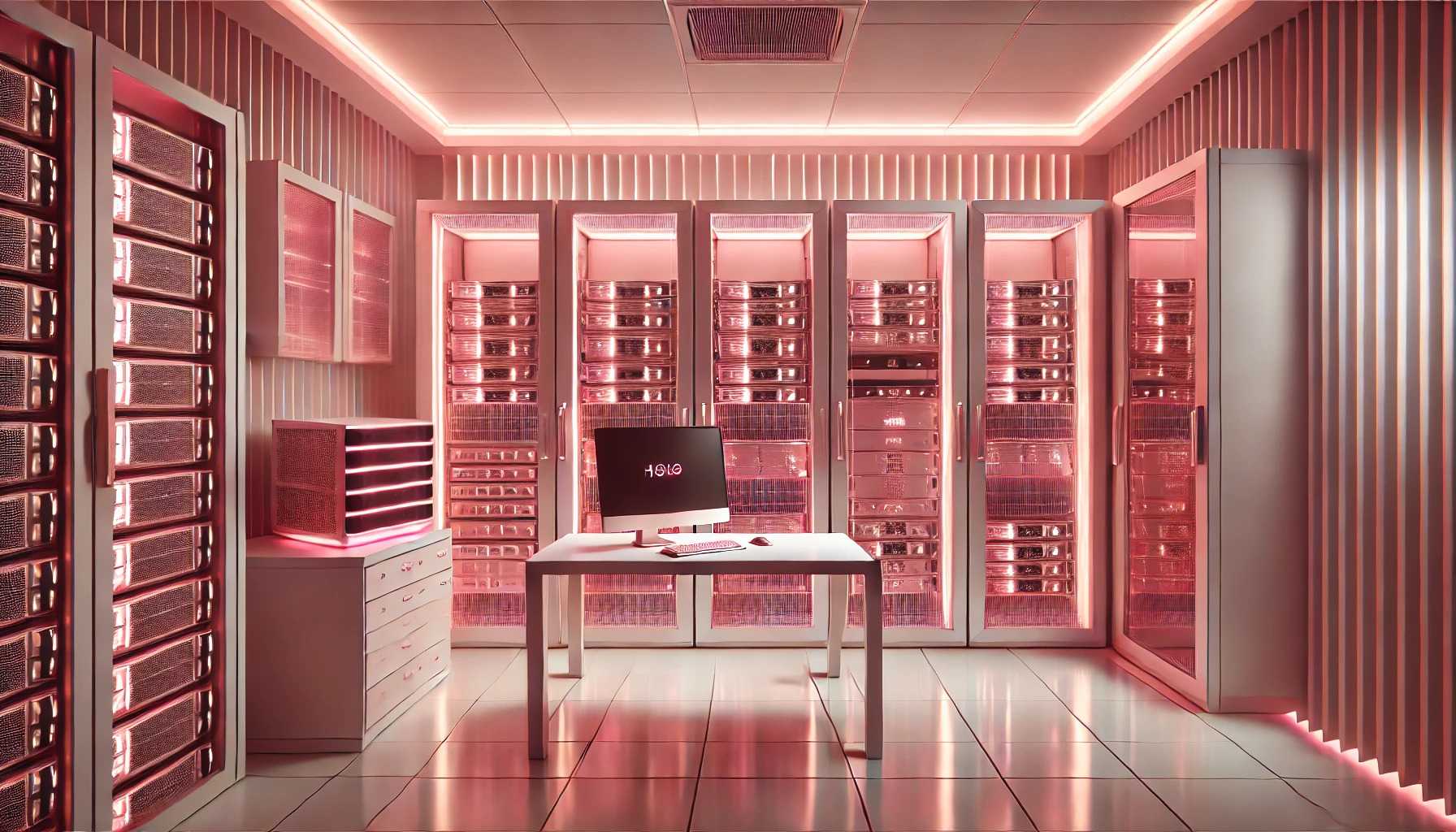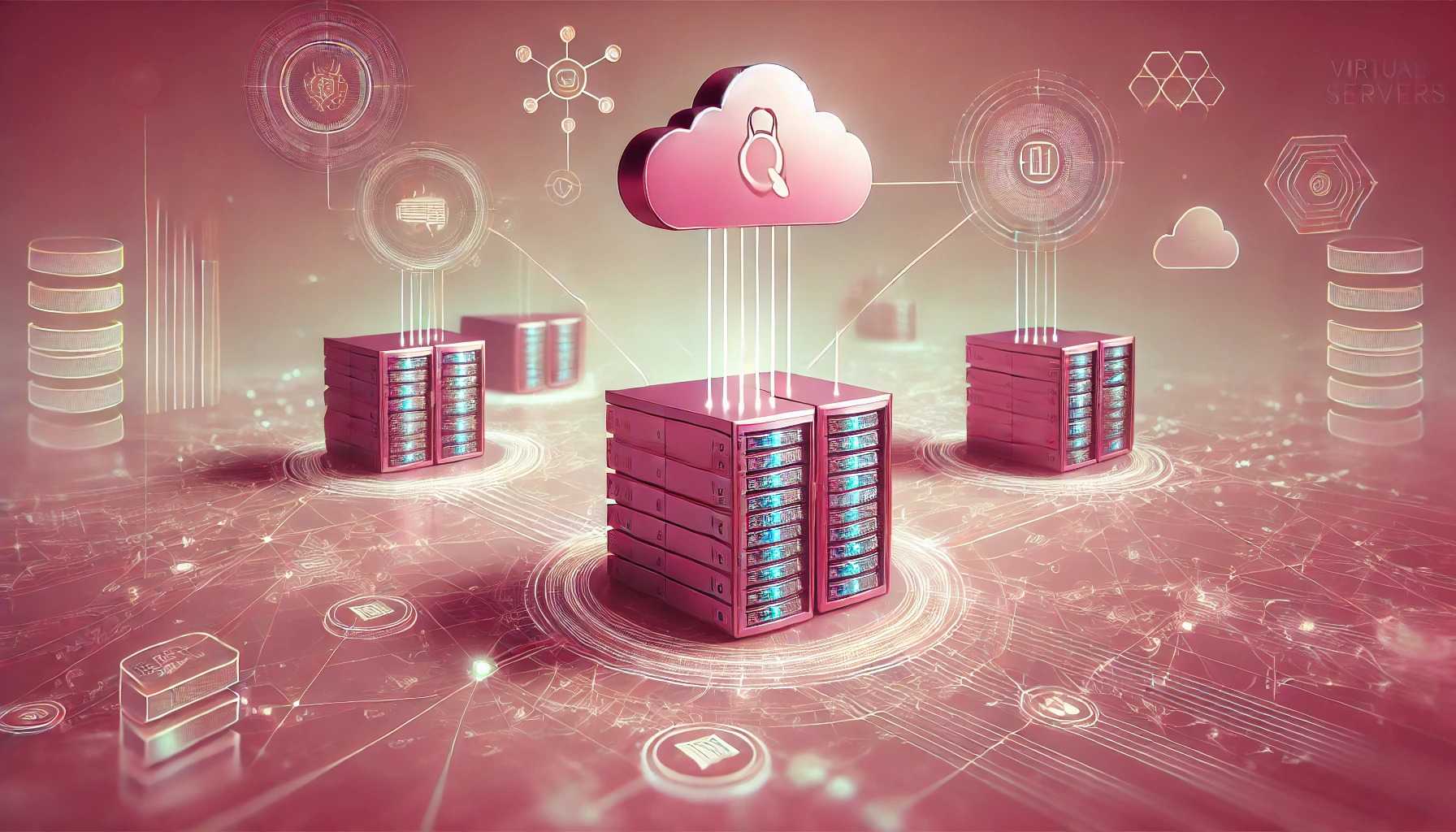Each task requires its own solutions. Some prioritize data security, some speed, and some power. What should one choose? In this article, we will examine different types of servers, their advantages and disadvantages. This article will help you choose a server that meets your needs.
In this article, we will compare different types of servers:
1. Dedicated servers
2. VDS servers
3. Cloud VPS servers
4. VPS servers
Dedicated servers

This is the base of all other types of servers; without them, it is impossible to obtain another type, such as a regular VPS or Cloud VPS. A dedicated server is a full-fledged computer, similar to the one you are presumably reading this article from. Other types of servers are hosted on it.
Advantages:
1. Stability – these servers are the most stable and reliable.
2. Power – you utilize all the capabilities of the "hardware" on the server.
3. Data security – since most servers use disks in RAID 1 mode*, even if one of the disks fails, the data will not be lost. Data on HDDs (regular hard drives) can also be recovered using specialized software.
4. Flexibility in configuration – virtualization can be enabled on servers or emulators can be used, which is not always available for virtual servers.
Disadvantages:
1. Price – these servers are much more expensive than VPS servers.
2. Backup – a complete copy of the data requires a lot of disk space.
3. Lack of flexibility in configurations – all configurations are fixed, and rarely do hosting providers allow editing server specifications.
*- RAID 1 is a mode of operation for server disks where one server is a complete copy of the second, allowing data to be preserved on the server.
VDS servers

Virtual Dedicated Server (VDS) is a virtual dedicated server. Most servers referred to as VPS usually have VDS underneath because they provide almost the same capabilities as dedicated servers, but they are still virtual servers.
Advantages:
1. All the advantages of dedicated servers.
2. The ability to create a complete backup of the server – all server data is contained in one qcow2* file, so it is enough to copy it for preservation. However, it takes up quite a bit of space, so not all hosting providers support this function.
3. Variability in configurations – unlike dedicated servers, it is possible to create a server with 1 core and 1 GB of RAM (random access memory), if the hypervisor* allows it.
4. Editing server parameters – if necessary, system parameters can be changed, for example, adding more cores to the server.
5. Price – because several servers are hosted on one node (dedicated server), this allows for cheaper servers for users.
6. The ability to fully manage the server – as with a dedicated server, you can reinstall the OS (operating system), connect disk images, install control panels, although you cannot manage virtualization or turn off certain server parameters.
Disadvantages:
1. Since several servers are on one node, the load from them affects the operation of other servers, slowing them down.
2. Scaling – although it is better than dedicated servers, due to technological limitations, it is impossible to create a VDS server with 1000 cores and 1000 GB of RAM.
3. Data loss – if the server was deleted, it is impossible to recover its data due to the technology's specifics.
4. If there is only enough space left for one small server, a larger one will not fit due to the physical limitations of the server.
* Hypervisor – the main program that manages all processes of virtual servers, such as creating a new server, copying, connecting networks, deleting servers, etc.
* qcow2 is a file format that includes a file system similar to a regular computer. It can be compared to iso images of LiveCD (discs where you can test the system without installing it on your device) distribution disks, but better.
Cloud VPS

These are servers that use resources from a combined infrastructure of several physical servers. This allows for easy scaling of resources as needed by the user.
For example, either allocate 1000 cores for 1 server or create 1000 single-core servers.
However, the performance of Cloud servers may vary depending on the configuration and load of the infrastructure.
Advantages:
1. Scaling – because Cloud servers combine several dedicated servers, this allows them to be virtually infinitely large.
2. Reliability – such servers have a shared infrastructure, which allows them to withstand heavy loads on the servers themselves.
3. Price – they are very cheap only if you pay for the actual use of resources. Need a server for a day? Easy. In other cases, they may not even be cheaper than regular VDS servers.
Disadvantages:
1. Performance – such servers are slightly slower than regular VDS servers because the data that processors need to process must be transmitted through physical channels within the data center, which are slower than the buses inside the servers themselves.
2. Compatibility – due to the specifics of such servers, some programs or OS may not work or work incorrectly. Usually, this concerns older versions of operating systems or programs.
VPS servers
A VPS server is when you have access to only one user on a VDS server. There are no advantages here except for the price, as this is the most stripped-down version of a server. Such servers can be useful for hosting simple websites or testing applications.
Disadvantages:
1. Limitation in running your own software – the ability to install your own software is either absent or heavily restricted to protect users.
2. Inability to change system settings – a limitation from a security standpoint.
3. High likelihood of virus infection – since several users are on one server, there is a greater chance of infecting your device with viruses present on another user's device.
4. Influence of other users on the speed of operation – resources are shared, so if one user runs very resource-intensive software, it will slow down the server for all users.
In conclusion, when choosing a type of server, it is important to consider the needs of your project. Dedicated servers provide maximum performance and control, but they are more expensive. VDS servers offer a more affordable solution with good performance, although they have some limitations. Cloud VPS servers provide high flexibility and scalability, making them ideal for rapidly growing projects. Regular VPS servers are the most budget-friendly option, but they may not handle high loads and require compromises in performance and reliability. The choice depends on the scale of the project, resource requirements, and budget.